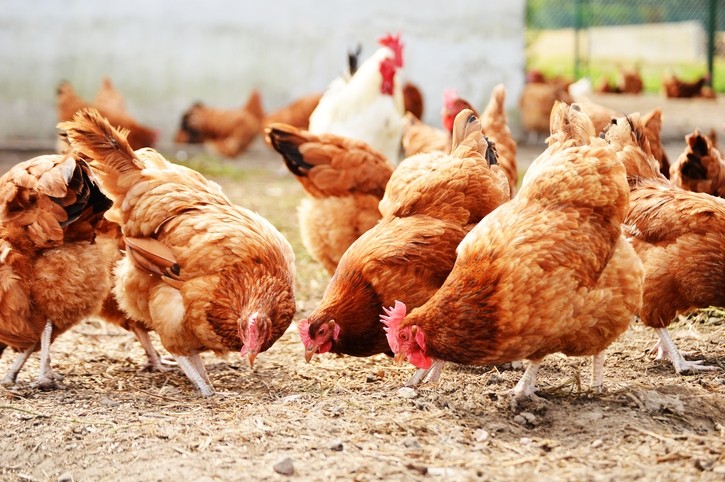US organic organizations call for return of animal welfare rule

The US Department of Agriculture (USDA) had decided to withdraw the Organic Livestock and Poultry Practices (OLPP), first published in January 2017, on the basis that the changes it implied for existing organic regulations "could have a negative effect on voluntary participation in the National Organic Program, including real costs for producers and consumers.”
That rule sought to end the ambiguity regarding what is meant by providing outdoor access for poultry as well as adding new provisions for livestock handling and transport for slaughter.
Initially, the rule was supposed to become effective in March 20, 2017; however, the USDA delayed the implementation several times, with it then set to come into force in May this year. The Organic Trade Association (OTA) sued the USDA in September 2017 over the implementation delays.
Laura Batcha, CEO and executive director with OTA, said that association and several other members of the industry continue to support the final rule.
“Consumers care about how animals are raised, and organic consumers really care,” she told FeedNavigator.
When the organic standards were first established to address animal feeding, production and care there was an understanding that they would need to be enhanced over time, she added.
The current rules are not that clear on the provision of outdoor access for poultry and that facet of the existing standards needs additional clarification, she said. “That has not been described in enough detail for third-party certifiers,” she added.
Organic certification continues to be highly regarded by consumers but all producers need to be held to the same standards, said Batcha. “Outside of the livestock community, all the organic groups want these because organics continue to hold the highest place in the shopper’s mind in terms of quality and integrity,” she added.
However, due to withdrawal, there will now be no amendments to organic feed production or use, as had been proposed in the final rule, she said.
“There was an additional set of standards [in the final rule regarding] the pasture requirements for ruminants and livestock, and there was a clarification of how much [of the diet] could be grain and how many days during the grazing season [they should be on pasture],” she said. “That was the last major standards clarification – we’ve always required 100% organic feed and the pasture for ruminants.”
The number of certified organic operations in the US grew by 7% and globally by 11%, said the USDA. Sales of organic products reached almost $47bn in 2016.
'Existing regulations effective'
The USDA said it was concerned also that the rule exceeded the department’s statutory authority.
“The existing robust organic livestock and poultry regulations are effective,” Greg Ibach, USDA marketing and regulatory program undersecretary. “The organic industry’s continued growth domestically and globally shows that consumers trust the current approach that balances consumer expectations and the needs of organic producers and handlers.”
However, the OTA and others have pushed back against this narrative, and there is some thought that the rule has been caught in a misapplication of the current administration’s deregulation efforts, said Batcha. The current government philosophy to provide regulatory relief for businesses may be being misapplied to the set of standards.
“That initiative is being applied to what is a voluntary set of standards,” she said. “These are standards that industry developed that people voluntary opt into and the consumer pays a premium for – the government’s role is to provide oversight and a level playing field.”
In two sets of USDA led public consultations on the rule, collected in the last 14 months, the majority of comments were in favor of it, she said. “They’re not being driven by the consensus in the industry,” she added.
There also may be some non-organic organizations that don’t want the USDA to be involved with the topic of livestock welfare, she said. “And there are a small group of organic operators who would be negatively impacted by this - they appear to have outsized political clout,” she claimed.
Lawsuit still pending
The OTA is continuing to push forward with its lawsuit regarding implementing the standards, said Batcha. “It is still pending – now that they have taken the [step] to withdraw we’ll likely amend our complaint,” she added.
“We really think the rationale that they’ve brought forward is flimsy at best,” she said. “We’re ready to get in front of a judge and hope to be there as soon as we can get date set.”








